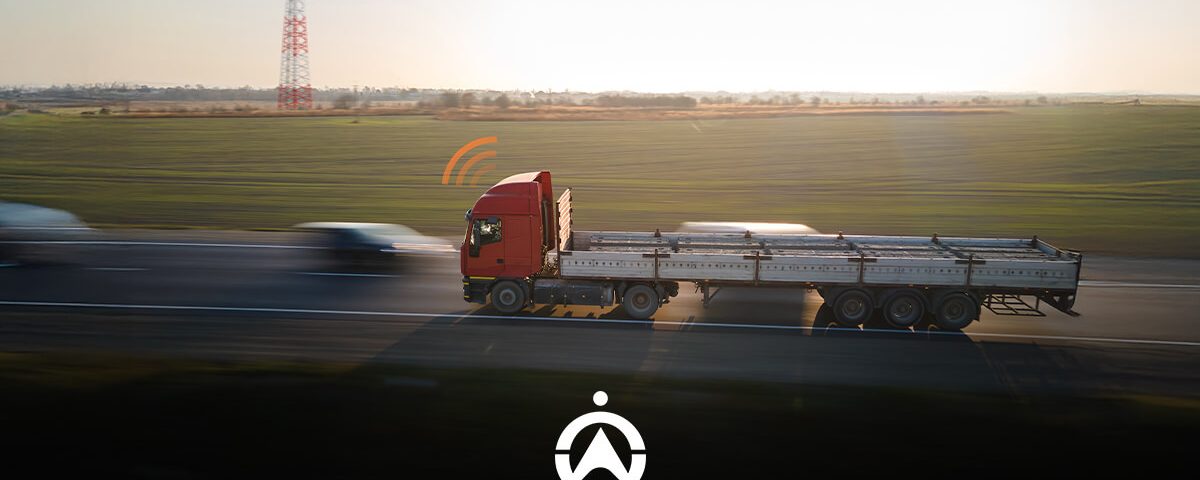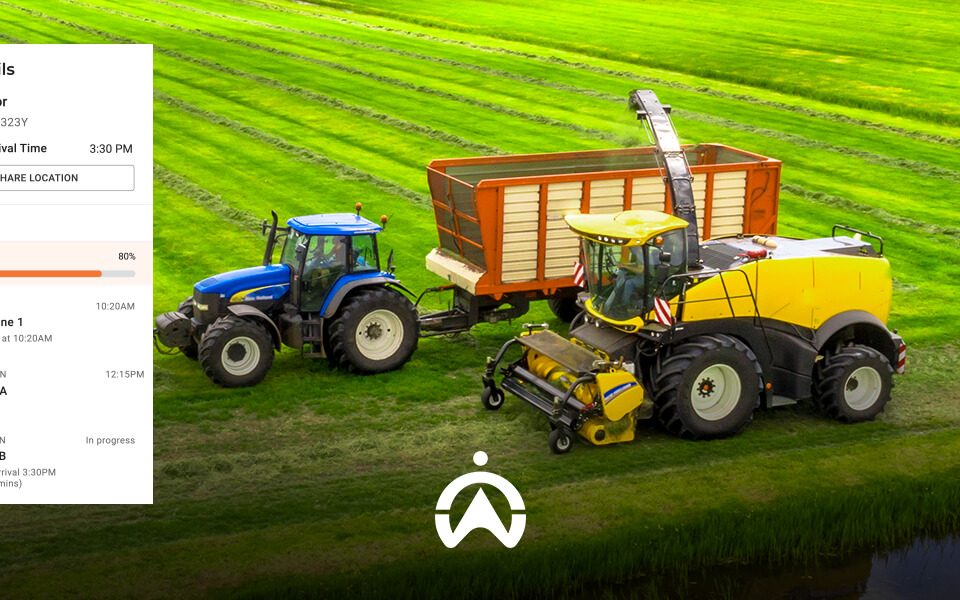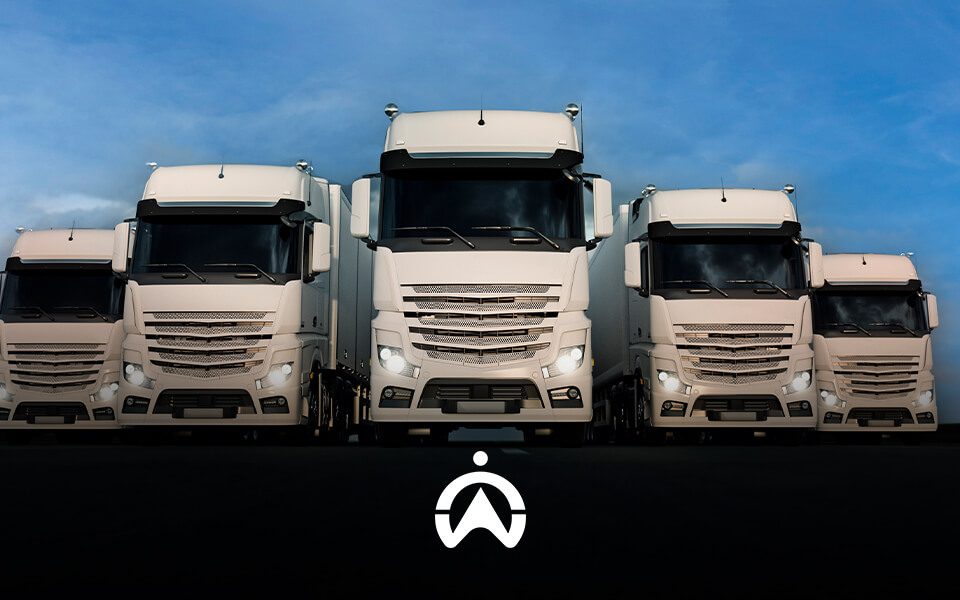Top 7 Fleet Management Trends for 2025 and Beyond
2024 has been a very turbulent year in the business world, with geopolitical conflicts affecting supply chains globally. The fleet management industry has had to adapt significantly to keep up with these events.
As we head into the new year, it is important to plan ahead and prepare for industry changes that are anticipated.
These developments have created a great opportunity for companies looking to develop and enhance their businesses. According to the 2024 Fact MR Market Research Survey, the fleet management industry is expected to grow from US$65 billion to US$300 billion in the next ten years, with South Africa as the leader in the African region. This presents an opportunity for companies looking to innovate and adapt their businesses to the future, it also gives them a head start on optimising their businesses for maximum profit.
The Current State of the Fleet Management Industry
The fleet management sector is undergoing tremendous change, with new markets growing into the space globally. This is no different in South Africa, a country full of businesses that produce products and raw materials. This fact is compounded by the growing global interest in South Africa as an emerging market. As a BRICS member, South Africa now forms part of a larger logistics and trade federation, which necessitates reliable fleet management systems to optimise supply chains.
Berg Insight estimates that active fleet management systems will grow at a compound annual growth rate of 10.3 percent from 2.3 million units at the end of 2023 to 3.8 million by 2028 in South Africa. For many companies operating in South Africa, an effective fleet management system is vital as it mitigates many logistical problems that are caused by weak infrastructure, bad planning, and other procedural variables.
With this system in place, companies can monitor driver behaviour, maintain vehicle maintenance records, track their vehicles and manage fuel expenses – whilst maintaining compliance with local laws and regulations.
In South Africa fleet management systems must abide by rules and regulations set by the South African Department of Transport. These regulations include but are not limited to, ensuring that driver’s licences are valid, vehicle registrations are up to date, and that all necessary safety features are installed.
These regulations are coupled with The Occupational Health and Safety Act, which determines the required conditions for a safe workplace for employees. It is the confluence of these factors that brings us to where we are as an industry in South Africa today.
However, new trends have emerged that are sure to shake up the fleet management industry. Let’s explore what these are and how they will affect you and your business in the years to come.

Seven Fleet Management Trends for 2025
As the world moves ever closer to complete digitalisation, companies globally are seeking ways to augment their processes and streamline efficiencies. It is often these considerations that can make a significant impact on a business’s bottom line, and overall stakeholder value.
In the fleet management sector, the best way to achieve these goals is by adopting emerging technologies that enhance how the industry as a whole runs. These new developments and innovations incorporate current processes and protocols with new tech and software.
Let us explore some of the new trends in fleet management in the year 2025.
- AI-Powered Route Optimisation
Artificial Intelligence (AI) has made a major impact on the world in the last year, with many industries looking for ways to apply it to their business models. The expansive use and application of AI is looking to reshape how the world works, the fleet management sector is part of that change.
AI-driven algorithms are getting better at predicting accidents, traffic patterns, and even weather changes- all in real-time. The benefits of this kind of technology in fleet management are clear and indicate to greater reliability in the software used. The future of AI in fleet management points to developments in traffic delay detections, reduction in fuel consumption, and adaptive rerouting. This is geared to increase efficiency and decrease decision-making protocols, allowing for quicker and more streamlined processes.This data-driven approach will dramatically increase delivery time and optimise the entire process, offering the manager a holistic overview of all operations, before, during and after delivery.
- Advanced Driver Assistance Systems (ADAS)
Accidents are very costly and dangerous, and often lead to delays, loss of life and lawsuits. With ADAS high-definition mapping and real-time data boost drivers’ situational awareness reducing the likelihood of accidents and hazardous roadside incidents.ADAS will become increasingly common in fleet management systems as we progress into the future. Automatic braking, adaptive cruise control, lane-keeping assistance, and collision avoidance are all features that come with ADAS technology, which means any vehicle with this system is better equipped to deal with unexpected road occurrences. These measures protect both the driver and the vehicle, additionally, they centralise all emergency protocols to a system that evaluates each incident accordingly.
- 5G Connectivity for Fleets
Fast and reliable internet connectivity is a vital part of communication systems, especially when managing a fleet of vehicles. With developments in 5G internet connection expanding wider, this is bound to greatly benefit the industry.Enabling this feature will lead to enhanced real-time monitoring, better communication between drivers and dispatchers, and faster updates from vehicles that are on the road. Another benefit is that faster connectivity will also allow for quicker response services such as real-time tracking, instant alerts, and dynamic route changes.Additionally, fleet managers who use a host of management apps will have faster communication channels and more reliable reporting tools.
- Predictive Maintenance with IoT Sensors
Vehicle maintenance is a necessary part of fleet management and is often done late in a vehicle’s lifespan, or when an emergency occurs requiring immediate repairs. These maintenance routines can hinder business operations leading to delays and disrupted workflows. The solution for this in 2025 will be predictive maintenance using IoT(Internet of Things). IoT is an internet connection for physical things, which allows them to share data and information with other devices and systems.IoT sensors can be installed in vehicles, where they measure all vital components and track how well they are performing. Vehicles equipped with sensors can transmit real-time data on engine performance, brake conditions, and other critical systems. This feature allows potential wear and tear issues to be detected and attended to early on before they become too severe and require extensive service. With this system, businesses can expect to reduce costs and vehicle downtime, meaning overall performance goes up.
- Driver-Focused Telematics
A fleet’s team of drivers are an essential part of the delivery process and form the backbone of a business, meaning their well-being is paramount to operations. Telematics systems that focus on driver and vehicle well-being are predicted to become a critical component of fleet management in 2025. This is because the system provides real-time feedback on driver activity, such as bad driving, speeding, hard braking and any other driver behaviour that might be detrimental to the vehicle and the delivery. With driver safety becoming a bigger priority, telematics systems like this are bound to decrease accidents and improve overall fleet performance.Route planning software with telematics integration is going to make driving a safer endeavour, making it easier to track and enhance driver performance.
- Carbon Footprint Tracking
The general population is now more environmentally conscious than ever and expects the same from the businesses they support. Any environmentally conscious efforts made by a business that show it is considering its contributions to global warming are certain to reflect well on the public. Additionally, global agencies now rate and score companies based on their carbon footprint, measuring their impact and often advising consumers to divest from those that score poorly.Sustainability remains a top priority for many companies with a large fleet, especially when considering the large carbon footprint caused by combustion engine vehicles. The world is moving towards finding greener solutions to minimise its impact on global warming. For this reason, carbon footprint tracking will be a factor that many fleet management systems will want to monitor.Tools monitoring carbon emissions will become essential, especially apps that integrate carbon tracking features, allowing businesses to measure and reduce their carbon footprint.
- Increasing Electric Vehicle Adoption
In line with sustainability goals, the adoption of electric vehicles is predicted to increase in many businesses with large fleets. Electric vehicles have lower carbon emissions and are less costly overall to run and maintain compared to traditional vehicles.This poses a significant logistical issue as electric vehicles require specific infrastructure to be charged while on the road. Route planning must then be considered, factoring in distances between charge stations and optimal travel routes. As this is predicted to be the norm in the coming years, government agencies and the private sector will need to align on what this future looks like infrastructure-wise.

Cartrack’s Fleet Management Solutions
Cartrack is a leading fleet management company in South Africa, ranking in the top 5 nationally. It is a reliable and highly specialised fleet management company with customers across various industries globally. Cartrack is on the cutting edge of vehicle tracking technology, with developments in fleet management systems for a diverse business clientele. The company is well-equipped for 2025 with many industry trends already in application in the solutions on offer.
These solutions can be tailor-made for the respective client to increase productivity, reduce costs and enhance overall efficiency. The reporting from Cartrack’s solutions is accurate and highly detailed, offering insights on how to optimise your business best. This reporting gives the business owner peace of mind and assurance on how the overall operations of the fleet are going.
The fleet management solutions available at Cartrack Namibia come with numerous features and adaptations that are necessary for any business going into 2025. Here are some below.
Standard features
- Internet-based access with no additional software required
- Movement sensing
- Alerts on harsh acceleration, braking, cornering and excessive idling
- Exceeding speed limit alerts
- Accurate GPS positioning and routing
- Mapping
- Creating and managing geofences
- Live positioning stream
- Generating management reports
- Odometer reports
- Replay of all travelled routes
Looking ahead into the near future, fleet management systems will become more sophisticated and efficient. This is exacerbated by the introduction of advanced technologies like 5G, AI, and machine learning. South African businesses will have access to powerful solutions that will optimise their unique fleet management needs. Ultimately these developments will optimise operations and improve overall safety and customer service. Leveraging these innovations will afford companies greater insights into their fleet’s performances while complying with regulations.
With South Africa’s emerging market status on the incline, it is natural to expect more business dealings to be headed here. This means that there will be a greater need for an efficient, reliable and effective solution to the imports and exports of goods. As more and more businesses move online, this will only get more complex, requiring solutions that can be tailored to various business structures and industries.
Cartrack Namibia is best equipped to take you and your business there. Contact us today to learn more about our fleet management solutions and how they can be tailored to your business’s unique needs.




